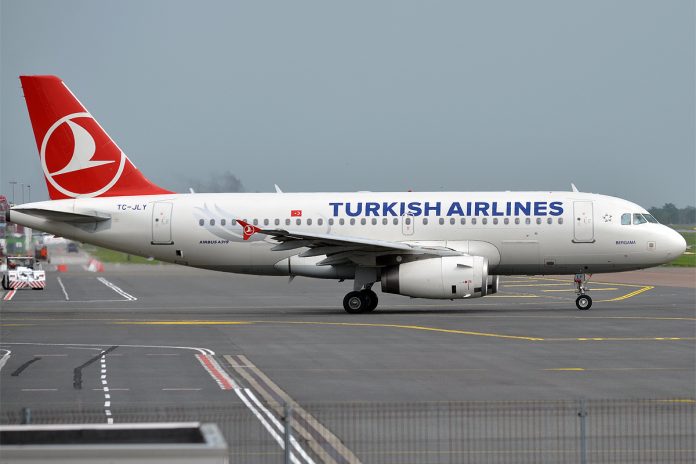- Turkish Airlines Picks Panasonic for In-flight Connectivity
Turkish Airlines has selected Panasonic Avionics Corporation’s advanced eX1 in-flight entertainment and communications system and global communication services for its new fleet of narrow body aircraft.
According to a statement by Panasonic, the eX1 solution is an advanced narrow-body IFE system, adding that its uncompromising industrial design, high-definition display technologies and high fidelity audio create a home theatre atmosphere that draws passengers into an immersive entertainment experience.
The system would include Panasonic’s unique Passenger Data Integration service, which would allow Turkish Airlines to add higher levels of personalisation to its in-flight experience, it added.
The PDI would also allow Turkish Airlines to seamlessly recognise the travel preferences of their guests and recommend content, services and amenities specific that would enhance their experience both in-flight and in their destination city, it added.
The PDI would also leverage a custom-designed Companion App that would enable passengers to securely pair their mobile device to the IFEC system and personalise and enhance their entertainment experience through capabilities that included custom playlists and a second screen environment, it stated.
The statement noted that the onboard experience would have high-speed, global Wi-Fi and multiple channels of live television, enabled by Panasonic’s Global Communications Services.
“It is the only worldwide in-flight connectivity service operating in every country in the world today,” it stated.
“Turkish passengers will be able to use the service to remain connected to their friends, families, co-workers though high speed access to the Internet, social media platforms, corporate VPN networks and more.
“Passengers will also receive live text news customised for Turkish Airlines by Anadolu Agency, a leading Turkish News Agency,” it added.
The television service, which is unique to Turkish Airlines, will feature the TRT World Turkish News Channel — a new channel from Turkey’s national public broadcaster, which broadcasts balanced, in-depth reporting with a focus on global responsibility, according to the statement. Other facilities listed are eight additional global channels including Sport 24. Sport 24, owned and operated by IMG; and live coverage of the world’s most popular sporting events.
It said, “Turkish Airlines’ new state-of-the-art in-flight entertainment, global high-speed Wi-Fi and live television services will be available on 92 Airbus A321 NEOs-ACF, 65 Boeing 737 MAX 8s and 10 Boeing 737 MAX 9s.
“As part of the strategic partnership agreement, Panasonic will establish a media centre and creative services team at Istanbul’s new airport until the first operation in this airport takes place, which will service Turkish Airlines exclusively.”
The Chairman of the Board and the Executive Committee of Turkish Airlines, Mr. İlker Aycı, said, “We needed a solution not only capable of providing a reliable system, but also a truly immersive in-flight experience to our passengers.
“With this additional support of Panasonic Avionics, we will continue to offer the seamless flight experience to our valued passengers.”
The Chief Executive Officer of Panasonic Avionics Corporation, Paul Margis, said, “Our partnership with Turkish Airlines is a long-term, strategic relationship. We are thrilled to extend our investment with both Turkish Airlines and the Turkish economy, and we look forward to a close collaboration with them on the products and services that will support them to achieve their 2023 objectives.”

 Naira4 weeks ago
Naira4 weeks ago
 Naira4 weeks ago
Naira4 weeks ago
 Travel3 weeks ago
Travel3 weeks ago
 Jobs4 weeks ago
Jobs4 weeks ago
 Naira3 weeks ago
Naira3 weeks ago
 Naira3 weeks ago
Naira3 weeks ago
 Investment4 weeks ago
Investment4 weeks ago
 Travel4 weeks ago
Travel4 weeks ago




























